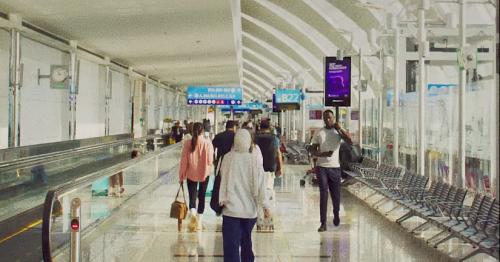Maximise your chances of getting a Schengen visa: Where to apply in 2025

A Schengen visa allows a traveler to move freely across Schengen member states in Europe, which include 29 nations, for a total duration of 90 days within a 180-day timeframe. This visa is particularly fitting for tourism, family visits, business trips, or any short term travel.
Obtaining the Schengen visa can be complicated. Most importantly is the justification for the trip and the country selected for the application. Winner applicants tend to have well-organized documents that are complete and accurate.
All Schengen states have visa prerequisites that are somewhat the same, but differences in processing time, approval ratings, and multiple entry visa issuance practices can drastically alter chances of being accepted. Because of this, the country where the application is submitted heavily impacts the odds of getting the visa, since the chances could differ greatly.
There is noteworthy information from clients of The Visa Services, a specialization team known for over eight years of expertise in visa support. This has been observed: many self-applicants struggled with getting visas on their own, however with expert assistance, more did succeed.
These are the statistics available at The Visa Services: for their customers, in 2023 the Schengen visa refusal rate for Indian citizens was 34% and 29% in 2024. In 2025, with the help of The Visa Services team's adept guidance, this number continues to decrease.
Even clearer positive dynamics occur for Egyptian citizens; there was a decrease in the refusal rate from 24% in 2023 to 21% in 2024 and further decrease in 2025.
Why Schengen visa applications get rejected and how to avoid it?
Applying for a Schengen visa during appointment windows rather than visa issuance policies results in one of the most prevalent reasons for denial. Countries such as Lithuania, Denmark, Sweden, Norway, and Estonia heavily scrutinize documents and the purpose of travel, which increases denial rates for Russian applicants—and in some notably extreme cases, can lead to an outright ban on future applications.
Moreover, there are “challenging” passports that make obtaining a Schengen visa even more difficult. Such nationals from struggling countries like Syria, Somalia, Iraq, and Sudan, among others, often endure much harsher scrutiny and greater chances of denial when it comes to these travel documents. The Visa Services team works extensively with these passport holders to secure a Schengen visa, thereby drastically improving the applicant’s chances of success. Their experts know what each passport holder requires at the submission stage and complies with the stringent guidelines for that nationality's consular representation, which guarantees a far greater attainment of success—even with the most difficult circumstances.
The context is different in the UAE: for newly arrived expats, prior travel log and even previously issued visas often hold next to no importance. In such scenarios, demonstrating a strong connection with the Emirates is imperative by showing employment verification, property ownership, and documents proving financial stability.
Completing an application package that is structured and is thorough boosts the chances of approval significantly. The Visa Services team knows how to effectively optimize these intricacies and what documents need to be provided to satisfy the expectations of visa officers, which makes a huge difference for applicants.
Factors influencing visa approval
A number of factors affect the results of the Schengen visa application as well as the issuance of the visa:
- appropriate country matching the applicant's profile;
- a properly compiled and complete set of documents;
- additional supporting documents that strengthen the applicant's profile (evidence of ties to the country of residence, financial stability, travel itinerary, etc.);
- previous travel history (especially important is the absence of visa violations);
- the purpose and duration of the planned trip.
These observations do not take into account the fact that each country has its own internal quotas and seasonal variations. Hence, the same case might differently depending on which consulate is selected.
Myths about Schengen visas
Myth 1: "If the visa is issued by the French consulate, you must fly to France."
Truth: This is incorrect. Visa policies state that the visa must be issued by the country of the principal destination, which is not necessarily the first country of entry. This means one can enter the Schengen Area through any country, provided there is logical coherence to the travel route.
Myth 2: "A single-entry visa allows you to visit only one country."
Truth: A single-entry visa permits access once to the Schengen Area; however, free movement between the countries that form this region is possible. As an illustration, someone can fly to Italy and later travel to France, Belgium, and Germany—all this on a single entry visa. The only restriction is that the traveler must remain in the Schengen area. If, for example, the traveler flies to Turkey, they will no longer be able to enter the Schengen area with the same visa. Also, note that some forms of travel within the Schengen area may, in fact, be considered exiting the zone. For example, traveling by ferry between two Italian cities that dock in foreign territories instead of by land may be regarded as leaving the Schengen area and thus voids the ability to re-enter Europe using the same single-entry visa.
However, many applicants tend to miss these details which when overlooked can have adverse effects on chances of securing a visa.
Personalised approach – The decisive factor
Visa services in the Schengen countries indeed bear much discretion and, the decision to either approve or deny a Schengen visa can depend on factors like the type of passport, trip itinerary, previous visas obtained, employer details, income bracket, and even owned assets, nationality of the spouse, flight route, and dates. This indicates that one does not only well prepared documents, but rather custom tailor application plans such policies for optimal chances.
With over eight years under the belt, The Visa Services has assisted clients with plan construction, submission, and strategizing along the following lines:
- Picking the most advantageous country for application based on the applicant’s best.
- Amassing all documents and compiling correct order and format.
- Bolstering basic claims with additional paperwork testimony.
- Managing borders or limits set by quotas, seasonal changes, new rules, and other recent shifts.
- Selecting travel date and route that pose least chance of rejection.
Refusal ratios, quotas, and seasonal allowance, as well as funneling priorities are openly re-evaluated. This year the consulates have put more constraints over which templates could be used alongside other pieces of identifying information set with vague widespread settings.
The Visa Services maintains a team of specialists who expertly tracks all relevant changes and the particulars of each visa application at a specific consulate. Each client is assigned a strategy that is bespoke to them which increases the chances of visa approval.
Navigate Schengen Visa Applications: Essential Tips for 2025 Travel Success. For further updates remember to subscribe to Just Dubai!






Comments